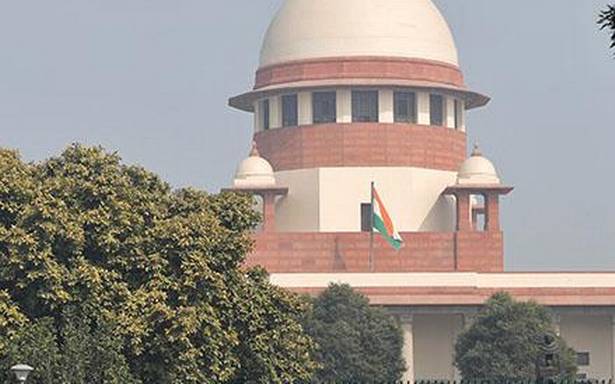Will increase illegal, illicit funding of political parties, Association for Democratic Reforms tells SC
An NGO, Association for Democratic Reforms, represented by advocate Prashant Bhushan, has moved an urgent application in the Supreme Court to stop any move to sell electoral bonds prior to the forthcoming Assembly elections in crucial States like West Bengal and Tamil Nadu.
The NGO, also represented by advocate Neha Rathi, voiced serious apprehensions that sale of electoral bonds before elections in States, which also includes Kerala and Assam, would “further increase illegal and illicit funding of political parties through shell companies”.
Its application reminded the court that both the Reserve Bank of India and the Election Commission had objected to the electoral bond scheme.
“Data obtained through RTI has shown that illegal sale windows have been opened in the past to benefit certain political parties… There is a serious apprehension that any further sale of electoral bonds before the upcoming State elections in West Bengal, Tamil Nadu, Kerala and Assam, would further increase illegal and illicit funding of political parties through shell companies,” the NGO submitted.
It said the electoral bonds scheme has “opened doors to unlimited political donations, even from foreign companies and thereby legitimising electoral corruption at a huge scale, while at the same time ensuring complete non-transparency in political funding”.
The government had notified the scheme on January 2, 2018.
It had defended the scheme in the apex court, saying it allowed anonymity to political donors to protect them from “political victimisation”.
The Ministry of Finance affidavit in the top court had dismissed the Election Commission of India’s (ECI) version that the invisibility afforded to benefactors was a “etrogade step” and would wreck transparency in political funding.
The government affidavit had said the shroud of secrecy was a product of “well thought-out policy considerations”. It said the earlier system of cash donations had raised a “concern among the donors that, with their identity revealed, there would be competitive pressure from different political parties receiving donation”.
Source: Read Full Article

